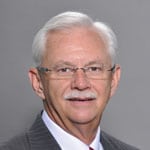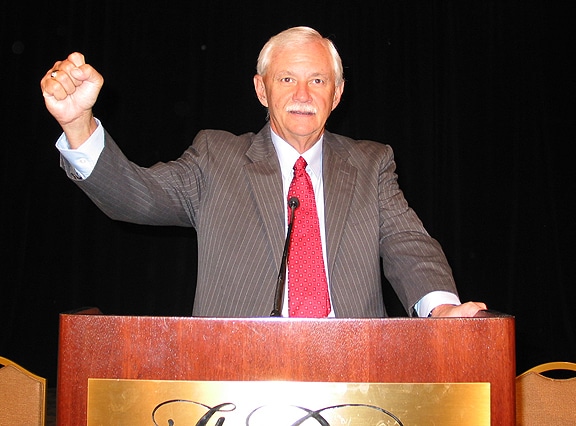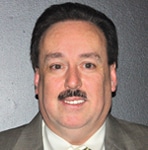Cheryl Sneed, who worked in the office of the United Transportation Union for nearly four decades, including as an executive administrative aide in the President’s Department, passed away on Nov. 25, 2019.

Cheryl started with the UTU in 1975 in the Word Processing Department, then progressed to the Legal Department and Bus and Yardmaster departments. She later handled correspondence and scheduling for former UTU President Mike Futhey and coordinated matters for the Board of Directors and Board of Appeals.
Among her many duties, she also helped to administer the union’s disaster relief fund before retiring in 2014.
A Mass of Christian Burial is scheduled for 10 a.m. Dec. 7, 2019 in St. Ambrose Catholic Church, 929 Pearl Road, Brunswick, OH 44212. Inurnment will be in Holy Cross Cemetery 14609 Brookpark Road, Cleveland, OH 44142.
A link to her death notice is here.
SMART-TD offers its sincere condolences to Cheryl’s family and friends.
Tag: Mike Futhey

Following a request by UTU International President Mike Futhey to RRB Labor Member Walt Barrows, the RRB has agreed to waive a time-consuming requirement that claims be verified by the carrier, thus expediting the claims procedure for members adversely impacted by Hurricane Sandy.
Those furloughed in the wake of Hurricane Sandy may thus file claims by telephone or electronically via the Railroad Retirement Board’s website.
To file claims for benefits, affected railroaders should call the RRB’s toll-free telephone number at 877-772-5772, or visit its website at www.rrb.gov/
To qualify for normal railroad unemployment benefits in the benefit year that began July 1, an employee must have had railroad earnings of at least $3,325 in calendar year 2011, counting no more than $1,330 for any month. Those who were first employed in the rail industry in 2011 must also have at least five months of creditable railroad service in that year.
Railroad unemployment benefits are normally paid for the number of days of unemployment over four in 14-day registration periods. The maximum daily benefit rate is currently $66, so maximum benefits for biweekly claims will total $660.
In addition, during the first 14-day claim period in a benefit year, benefits are payable for each day of unemployment in excess of seven, rather than four, which basically creates a one-week waiting period.
To file an application for benefits online via the website, a furloughed worker must have an Internet Services Account with the RRB. For security purposes, first-time users must obtain a unique password, which they can do by clicking on the link for requesting a Password Request Code (PRC) in the Benefit Online Services login section at www.rrb.gov
Individuals who have already established an Internet Services Account and password can go online to file applications and claims for biweekly unemployment benefits.

Futhey was re-elected by a vote of 453-34 against challenger Scott Cole, delegate from UTU Local 278.
Also re-elected Aug. 8 — by acclamation — were Assistant President Arty Martin, General Secretary & Treasurer Kim Thompson and National Legislative Director James Stem.
Election results for Aug. 9 include:
* Robert Kerley, Dave Wier, John Previsich and Delbert Strunk were all returned by acclamation as International vice presidents.
In other International vice president elections:
* Paul Tibbit defeated John Babler, 371-117.
* John Lesniewski defeated J.R. “Jim” Cumby, 420-68.
* Bonnie Morr defeated Calvin Studivant, 274-213.
Additionally, Alternate National Legislative Director John Risch was re-elected, defeating Jay Seegmiller, 378-105.
Also:
* Calvin Studivant was elected alternate vice president-east, Bus Department, by acclamation.
* Brian Donald was elected alternate vice president- west, Bus Department, with 337 votes, defeating Adhi Reddy (75 votes) and Robert Gonzalez (74 votes).
* Larry Barrilleaux, R. W. “Red” Dare, John England, Troy Johnson, Doyle Turner and Daniel Young were elected alternate vice presidents, receiving a majority of votes (and more than 50 percent of ballots) among nine candidates for six alternate vice president positions. Defeated were Carl Farnie, Kevin King and Charles Piland.
Also:
* Dale Barnett was elected “Engine Service Member” on the Board of Appeals, defeating Daniel O’Connell, 369-116.
* Donald Seyer was elected, by acclamation, “Road Service (Train Service) Member” on the Board of Appeals.
* Dale Welch was elected, by acclamation, “Yard Service (Train Service) Member” on the Board of Appeals.
* Dirk Sampson was elected, by acclamation, “Commuter Authority Member” on the Board of Appeals.
* Alvy Hughes was elected “Bus Department Member” on the Board of Appeals, defeating Adhi Reddy, 379-106.
Also:
* Steve Dawson, Mike Anderson, Steven Mavity, George Millward and Robert Resendez were elected, by acclamation, to the Executive Board. Phil Craig defeated Harry Garvin, 346-140, in election for alternate to the Executive Board.
Terms of elected officers and alternates begin Jan. 1, 2012.
Per an arbitrator’s ruling in the pending litigation and arbitration of whether the merger agreement between the UTU and the Sheet Metal Workers International Association (SMWIA) is an enforceable agreement, a parallel election is being held for officers of the Sheet Metal, Air, Rail and Transportation (SMART) Workers Union.
Each of those elected Aug. 8-10 to a UTU position was also elected to the same-named position in SMART.
As to the parallel SMART election, Arbitrator Michael Gottesman required that “if SMWIA so requests,” the UTU convention will hold separate elections for officers of UTU and of SMART. SMWIA General President Joe Nigro has so requested. Accordingly, after nominations for each UTU officer position are closed and the election completed, nominations and elections for the corresponding SMART officer positions are being opened.
Arbitrator Gottesman said the required vote on SMART-officer positions should in no way suggest he has reached a decision.
The holding of the convention and procedures for election are provided for in the UTU Constitution. It is available for viewing by clicking on the following link:
https://static.smart-union.org/worksite/PDFs/UTU_Constitution_012710.pdf
 UTU International President Mike Futhey
UTU International President Mike Futhey UTU International President Mike Futhey
UTU International President Mike Futhey 